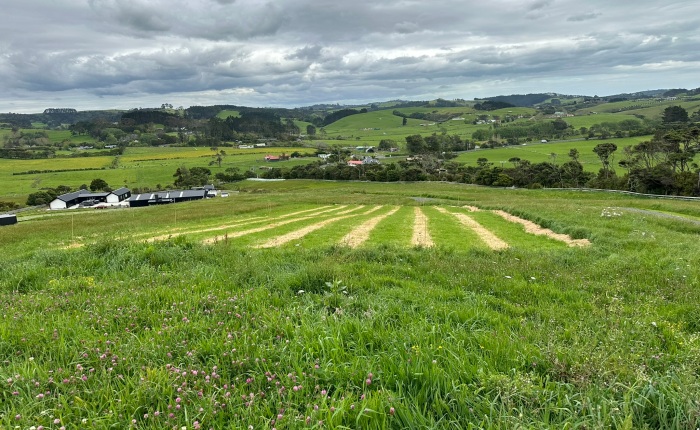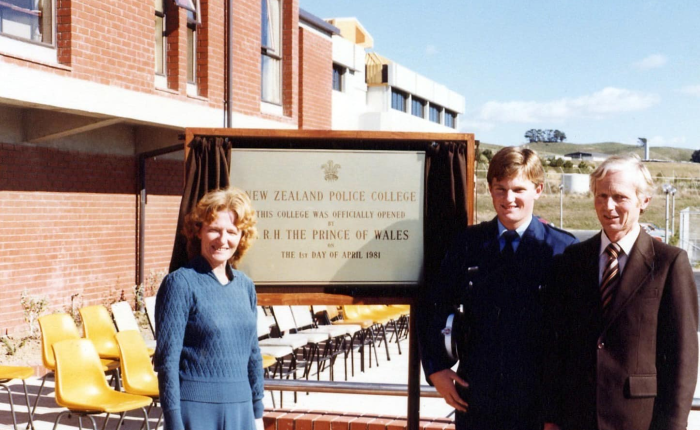A year ago last week “Practical Completion” of my new build allowed me to insure my new home in the country and move in. It was the day of Mum and Dad’s 70th wedding anniversary so a big day all around. Quite a few things didn’t work – automation is a great thing until it’s not – but it was (and still is) sparkly and the views are really quite special. Lots of green, some sea, more green, farms, some livestock, and green. Oh, and gorgeous sunsets.
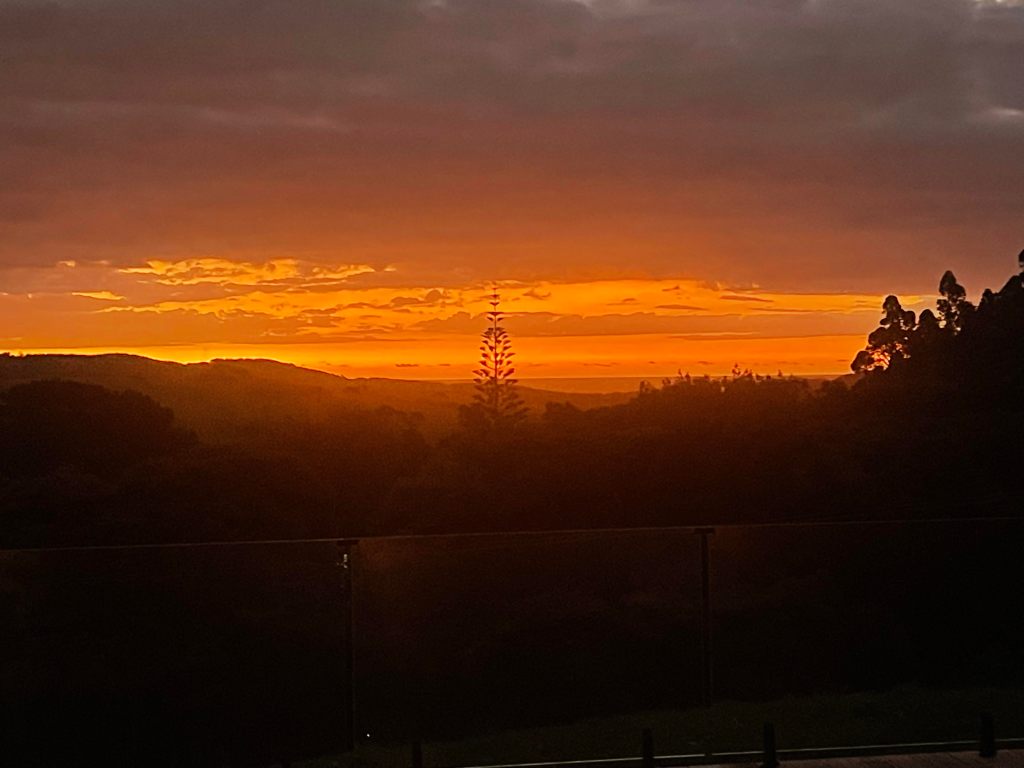
There seems to be two types of people in the country where I am – locals, who wave like I’m their best friend – and everyone wants to help – they really do – but most of the people waving are strangers who wave when I’m out walking. Then there’s those passing through to the beach, generally in a big rush to get there very quickly and then relax quickly I assume.
I didn’t really realise but building on the top of hill with a valley below has features in the country you might not necessarily think of. Or maybe I was a bit naive. Everyone can see you! Well not me personally or close up (I hope), but the house, what I’m doing on the land, and whether I have visitors. Walking and looking back up at my house it sticks out a lot more than when I’m looking out. And it’s not a massive house by any measure, but noticable.
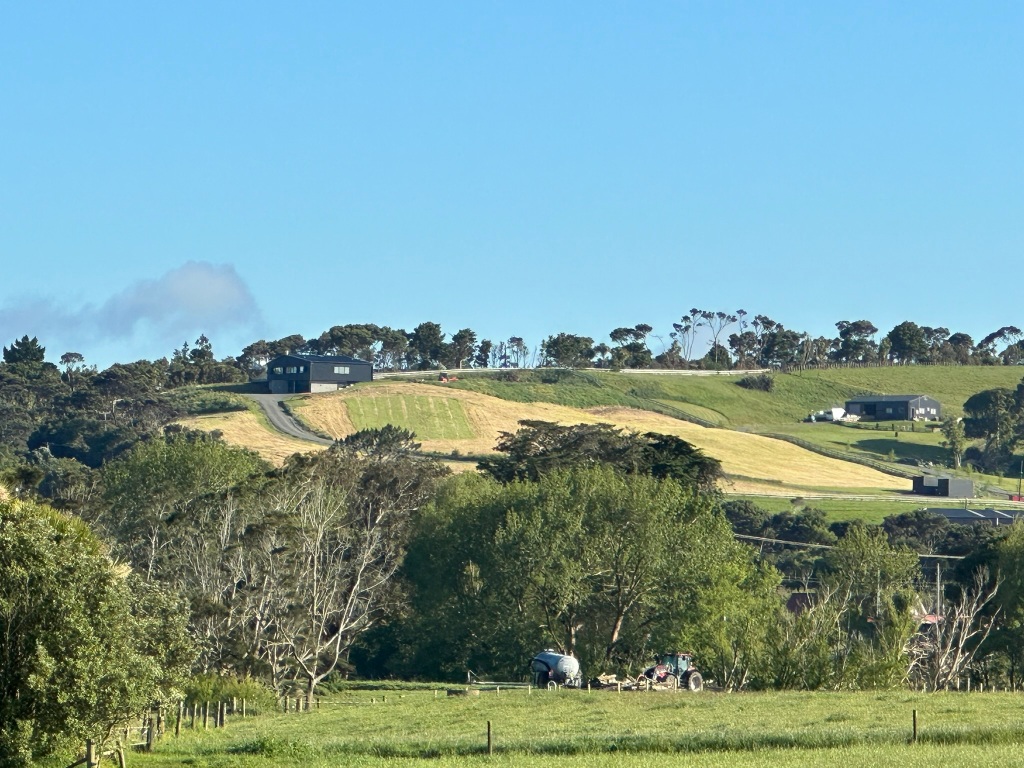
“They’re watching what you’re doing Stephen” my local friend and farming advisor Philip tells me. “Watching what?“, “Well they like what you’re doing, making that land something, the planting, the silage and that sort of thing“. I hope they like it! Being a silage farmer isn’t exactly the sort of earning you might give up your day job for. More like getting paid (eventually) an amount that is similar to what you might pay to mow the grass.

As best as I can tell the last building to inhabit my site was a school in the 1940s, so I guess it’s something new. Building a home and making it just right seems to be a forever thing. Firstly, getting beyond “Practical Completion” to the elusive Code of Compliance Certificate is a topic for another day otherwise this blog might turn into something slightly less friendly! In the country on a little bit of land – yes everyone told me – it’s never done. Not like a satisfying few hours in a city house where the garden can be brought into shape, with time to wash the car and hose the driveway for good measure on a Sunday afternoon. Nope, it’s a journey.
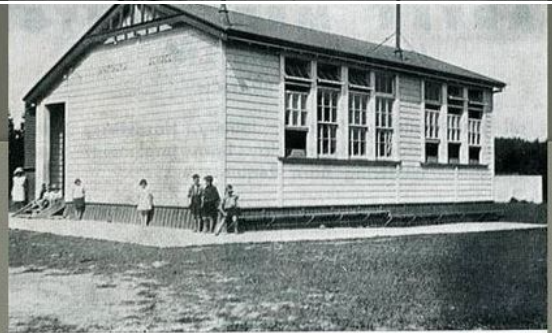
And I’ve had to get my head around not every corner is always as I want it – in fact no corner is really. But I’ve got a massive list of mini and major projects and I just get at them when I can – one step at a time, and I can see a difference. I remember attending a session at Cornwall Park on their 100 year plan once and the vision that the designers have is awesome. I’m not that grand by any means but having a master plan has meant progress is actually not too bad, and helps me to relax about the bits that still need attention, or won’t get done until 2025 say.
The country – you can see further, and you need to think further too.
Stephen
- Philip is my Charlie Ireland from Clarkson’s Farm (I like to think)
- The “Sort of” bit is because I’m spending much of my working time in my home town Otautahi Christchurch
